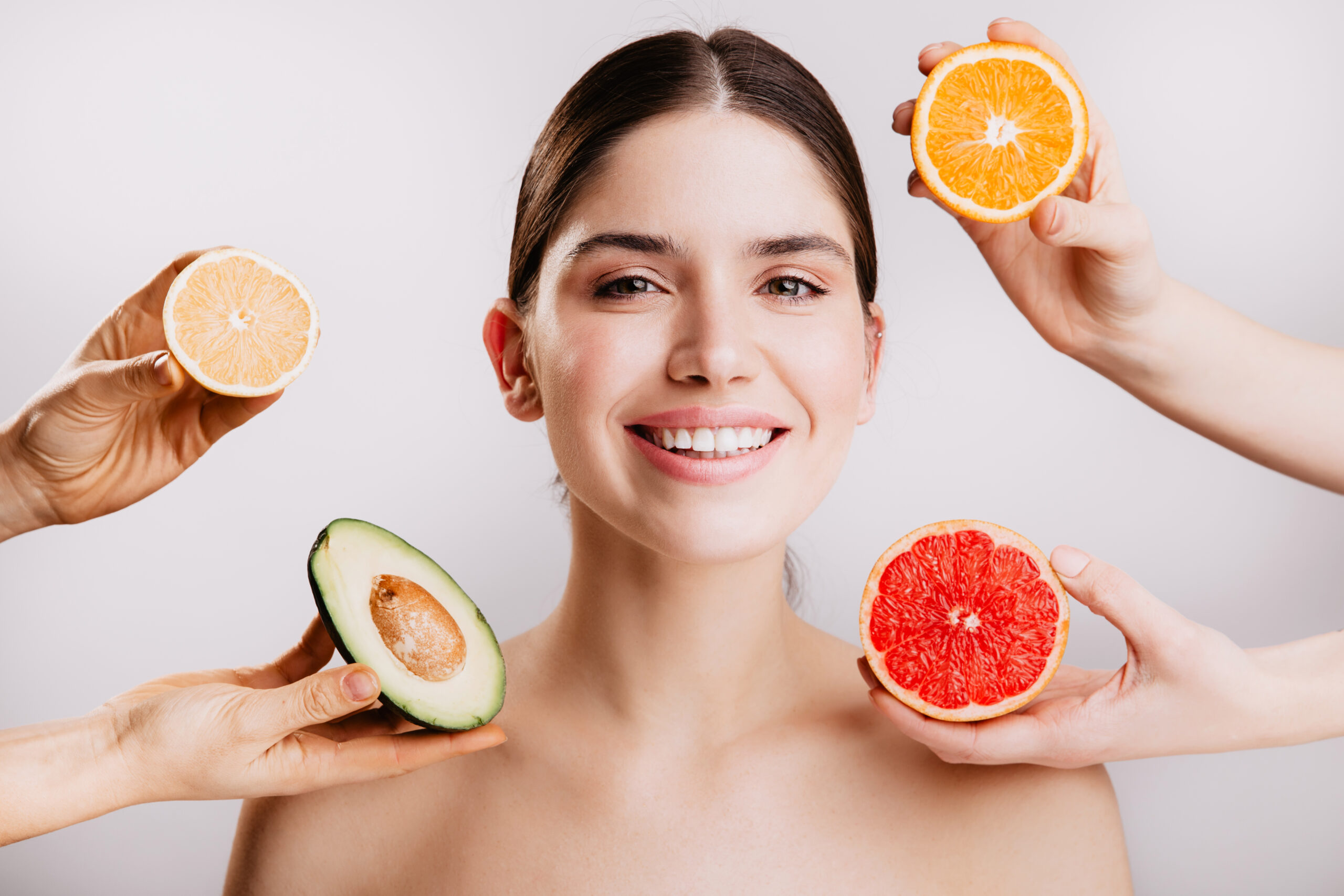7 Collagen-Rich Foods For Glowing Skin
Glowing, youthful skin is a universal desire, but as we age, our body’s natural collagen production begins to decline. Collagen is the most abundant protein in the human body, responsible for maintaining the elasticity, firmness, and overall health of our skin.
While creams and serums can offer temporary solutions, nourishing your skin from within through a collagen-rich diet can provide long-term, sustainable results. In this blog post, we delve into the top 7 collagen-rich foods that can help you achieve radiant, glowing skin naturally.

Bone Broth
Bone broth is often considered the gold standard when it comes to collagen-rich foods. Made by simmering the bones and connective tissues of animals, usually chicken or beef, for extended periods, bone broth is loaded with collagen, gelatin, glycine, and other skin-supporting nutrients.
Why It Works:
Bone broth contains type I, II, and III collagen, which are essential for skin structure, joint health, and elasticity. The slow cooking process breaks down bones and tissues to release collagen in a highly absorbable form.
How to Use:
Enjoy a warm cup of bone broth daily or use it as a base for soups, stews, and sauces.
Salmon
Salmon is not only rich in collagen-supporting nutrients but also in omega-3 fatty acids, which help maintain the skin’s lipid barrier and keep it hydrated.
Why It Works:
Salmon’s skin contains marine collagen, which has smaller peptide molecules and higher absorption rates compared to bovine or porcine collagen. Additionally, omega-3s help reduce inflammation and oxidative stress, both of which can accelerate skin aging.
How to Use:
Grill or bake salmon with herbs and lemon. For maximum collagen intake, opt for cuts with the skin on.
Egg Whites
Egg whites are a powerhouse of proline, an amino acid that is a building block of collagen.
Why It Works:
Though they don’t contain collagen directly, egg whites provide key amino acids necessary for the body to produce collagen. They also contain skin-tightening enzymes that can have a temporary firming effect.
How to Use:
Add egg whites to omelets, breakfast wraps, or smoothies. You can also apply them topically as a face mask for instant tightening.
Citrus Fruits
Oranges, lemons, grapefruits, and limes are loaded with vitamin C, a crucial vitamin for collagen synthesis.
Why It Works:
Vitamin C acts as a cofactor for the enzymes that stabilize and cross-link collagen molecules. It also helps neutralize free radicals that degrade collagen and cause premature skin aging.
How to Use:
Start your day with a glass of lemon water, include citrus segments in your salads, or snack on an orange for a midday boost.
Berries
Strawberries, blueberries, raspberries, and blackberries are rich in antioxidants and vitamin C, making them excellent for collagen support.
Why It Works:
The antioxidants in berries help fight oxidative stress and inflammation that can break down collagen. Additionally, vitamin C in berries further promotes collagen production.
How to Use:
Toss berries into your morning cereal, blend them into smoothies, or enjoy them as a refreshing dessert.
Leafy Greens
Spinach, kale, swiss chard, and other leafy greens are collagen-boosting superfoods thanks to their rich vitamin C and chlorophyll content.
Why It Works:
Chlorophyll, the pigment that gives greens their vibrant color, has been shown to increase the precursor to collagen in the skin. Leafy greens are also high in magnesium and antioxidants, essential for skin repair and health.
How to Use:
Include leafy greens in salads, green smoothies, or sauté them with garlic and olive oil as a side dish.
Nuts and Seeds
Particularly almonds, walnuts, chia seeds, and flaxseeds are packed with zinc, vitamin E, and omega-3s, all of which are vital for skin health.
Why It Works:
Zinc plays a key role in collagen synthesis, while vitamin E helps protect collagen fibers from oxidative damage. Omega-3 fatty acids provide anti-inflammatory benefits that help maintain skin structure.
How to Use:
Sprinkle nuts and seeds over your oatmeal, add them to baked goods, or consume a handful as a healthy snack.
Bonus Tips for Maximizing Collagen Absorption
- Stay Hydrated: Water is crucial for maintaining skin elasticity and supporting collagen structure.
- Limit Sugar Intake: Excess sugar can lead to glycation, a process that damages collagen fibers.
- Avoid Smoking and Excessive Alcohol: Both accelerate collagen breakdown.
- Get Adequate Sleep: Collagen production increases during deep sleep phases.
- Use Collagen Supplements Wisely: If dietary intake is insufficient, hydrolyzed collagen peptides can help boost levels.

Conclusion
Incorporating collagen-rich foods into your diet is a powerful, natural way to enhance skin health and achieve that elusive glow. From bone broth to berries, each of these foods offers a unique set of nutrients that support collagen synthesis and skin vitality.
While skincare products may provide temporary results, true radiance starts from within. Embrace a holistic approach by combining a collagen-boosting diet with a healthy lifestyle, and your skin will thank you for years to come.
References:
- https://www.ncbi.nlm.nih.gov/pmc/articles/PMC6835901/
- https://www.healthline.com/nutrition/foods-for-skin
- https://pubmed.ncbi.nlm.nih.gov/24401391/
- https://www.ncbi.nlm.nih.gov/pmc/articles/PMC4281651/
- https://www.medicalnewstoday.com/articles/325208
- https://www.webmd.com/skin-problems-and-treatments/collagen-skin
- https://www.ncbi.nlm.nih.gov/pmc/articles/PMC3583891/